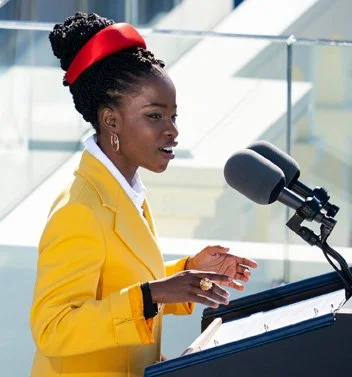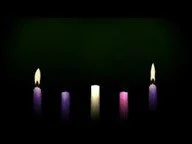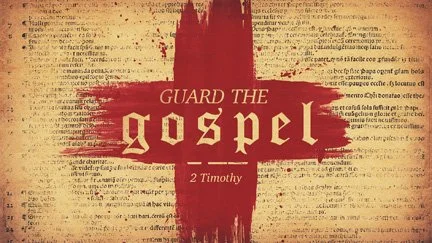I was born in 1961, right in the midst of the Civil Rights Movement. The country was torn apart in so many ways. I can remember vaguely seeing on television the pictures of the marchers and protesters, sometimes being hosed by the police, other times being beaten with billy clubs, but never raising their hands in self-defense or assault. I remember the voice of Martin Luther King, Jr., and the comments made about him by the people around me, who saw him, not as a great leader or prophet or reformer, but as a black man who had forgotten his place and was always stirring up trouble.
I remember also the divisions caused by the Vietnam War. People again took to the streets to protest, and others took to Canada to avoid the draft. The nightly news was filled with film of the fighting in a land that looked so different from our own, and the war seemed to go on forever. People argued over whether or not we should even be involved in Vietnam. And I remember the shameful way we treated the veterans when they got home, forgetting that even if we don’t support a war, we should always support our troops. It was a troubled and a troubling time.
I remember the anger, fear and shock when John F. Kennedy was assassinated, when Martin Luther King, Jr., was assassinated, and again with Robert Kennedy was assassinated. People were frightened, and I remember thinking that if people like that were not safe from being killed, then who was?
Division and arguments continued over the years as we lived through the turbulence of the Watergate incident and the resignation of Richard Nixon as President of the United States. We saw one president being shot at and missed, and another being shot. A third president was impeached over an affair that is best left untalked about in polite company. (Who ever would have thought we would have to explain certain sex acts to children who heard about them on the 6:00 news?)
Our country was changed forever on 9/11/2001, when terrorists attacked our country by using commercial jets as weapons, crashing into the twin towers of the World Trade Center in New York and the Pentagon, and heading towards a fourth target in Washington, D.C. We seemed more united that we had been in years, and yet a part of our unity seemed to be increased racial intolerance, as people became suspicious of anyone who appeared to be Arabic. There were reports of attacks on innocent people, simply because they looked like the enemy.
We elected our first African American president and congratulated ourselves on how far we had come since those days before the Civil Rights Movement. Look at how much progress has been made! And yet, this election also brought out more racial hatred in some white supremacists, and there were more threats to President Obama’s life than any other president in modern history. And in a tremendous pendulum swing, we elected as our next president a man who could not be more different from Obama. The election campaigns were as nasty as any I have ever seen, with name-calling on both sides.
We continue to see division and divisiveness in America, with racial tensions as high as they have been since the 1960s, hate crimes on the increase, and politics that have devolved to the point of senators and representatives refusing to work with, or even talk with, those in the opposing party. The government seems stagnant and stale, and no one seems to have the backbone to stand up and lead, without a thought about whether or not it will affect their ability to be re-elected. And now there is a saber-rattling competition going on with Iran that could lead us to a new war.
Even in my religious life, there is trouble and dissension. The United Methodist Church has been divided since the 1970s over the issue of homosexuality and is now at the point of considering plans to split at our next General Conference in May of this year. There has been much harm done by the ongoing fight, to those who are gay, and to the work that could not be done by the church because so much of our time and energy has been spent arguing about one issue. While I can’t predict what will happen, I am fairly certain that there will be a division; what that looks like in detail will be determined in May.
In my lifetime, there have been few periods of true peace in our nation, much less in our world. But it somehow seems worse now than I can ever remember. I see how entrenched our elected leaders have become; there seem to be two extremes, with no room for a middle ground of compromise and cooperation. People of the opposing party are not seen as people with whom we disagree, but as enemies who must not be trusted or befriended. And from the top down, the anger and aggression have spilled over into the broader culture, with racial violence on the upswing, attacks being made against Jews and Muslims on the increase, and families unable to talk about the important issues of the day without getting into fights. Some people don’t even spend time with certain family members or friends anymore, because they disagree on political issues.
What is the answer? How do we make a difference? How do we demonstrate another way of living, another way of being?
We do it by following the Prince of Peace, Jesus Christ. The world he came into was a world marked by violence, oppression, and religious and racial persecution. The Roman government was corrupt, and positions were often bought rather than earned. People who had been conquered were treated harshly and taxed severely. Anyone who raised a voice in protest was silenced, one way or another. The rich were getting richer and the poor were getting poorer, and justice had ceased to be even a dream for most people. The death penalty was meted out with a firm hand, its victims intended to be deterrents to future crime.
And into a world where money and power talked, where the only peace around was the Pax Romana, Roman peace within the empire, came Jesus. His birth was announced to simply shepherds by an angel choir, who promised “peace on earth, goodwill to men.” Jesus had been spoken of by the prophet Isaiah as the Prince of Peace, the one who would bring about a reign of peace on earth.
The Jewish people were expecting a Messiah who would bring about that reign of peace by driving out the Romans and setting up a Jewish government for a free nation. They looked for a military leader, a king; and instead, God sent a carpenter who became a traveling rabbi at the age of 30. No wonder so many people missed it. They didn’t see Jesus for who he was, because he wasn’t who they were expecting.
Jesus lived a life of humility and service, a life spent with the common people, by and large, the poor people, the people on the fringes of society. He taught them using simple stories and instructions, and yet he also managed to confront the religious establishment and the Roman governor enough to make them afraid of him and to see him as a threat to their power and authority. He spoke the truth, no matter who it offended, and he lived a life that was above reproach so that his enemies had no reason to criticize or condemn him. He welcomed anyone and everyone who came to him, which included those who were seen as impure and unworthy by the Jewish leaders. He conducted a ministry of teaching, healing, and preaching, demonstrating compassion and grace to everyone he met. He could have gotten along with anybody, except those who took advantage of the people or who were hypocrites in their spiritual lives. But even for them, Jesus offered grace and mercy.
Those who follow Jesus, you and me, we are called to live a life of peace and compassion and welcome. We are to follow the example of Jesus, who was humble and yet strong, who was merciful and yet never compromised his convictions. Jesus always told the truth, and we are called to speak truth to power, even when it is difficult. We are to show how peace-making is possible, even with our worst enemies, and in that witness we are proving that peace is possible in our world.
One of the greatest modern examples of peace-making that I have seen is the work done by Nelson Mandela in South Africa. When he was finally released from prison and the days of Apartheid were over, he had the political strength to have unleashed vengeance on the white population of his nation for all the oppression and violence that had been done. But instead, Mandela worked diligently to heal the divisions, to unite his country, and to find a way to move forward with people working together. And it was an incredible success story.
Peace is possible in our country and in our world. But only if people of faith work as peacemakers in their own homes, in their churches, in their communities. We have to demonstrate through our words and our actions that there is another way, a better way to live. It is possible to discuss issues without becoming belligerent; it is possible to work together with people we disagree with to solve the complex problems that face our country. It is possible for people who are different to share common goals and to cooperate and sometimes compromise for the good of all. It is possible to not only tolerate people who are of a different political party, or racial group, or nationality, but to love them with the love of God. It is possible to choose compassion over hatred, to choose welcome over mistrust, to choose mercy over revenge. It is possible to choose acceptance over judgment. It is possible to choose justice over prejudice and stereotyping. It is possible to be at peace with each other.
So I say, let there be peace. Let there be peace in our homes. Let there be peace in our communities. Let there be peace in our churches. Let there be peace in the United States. And let there be peace on earth.









